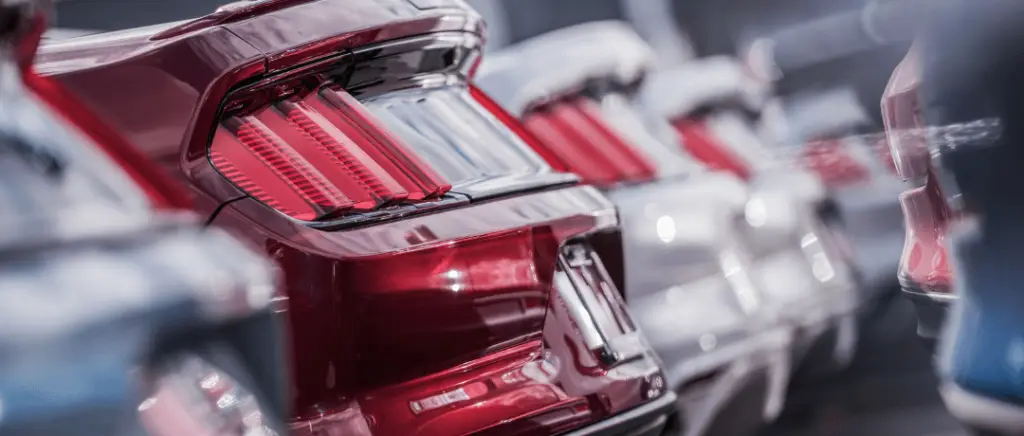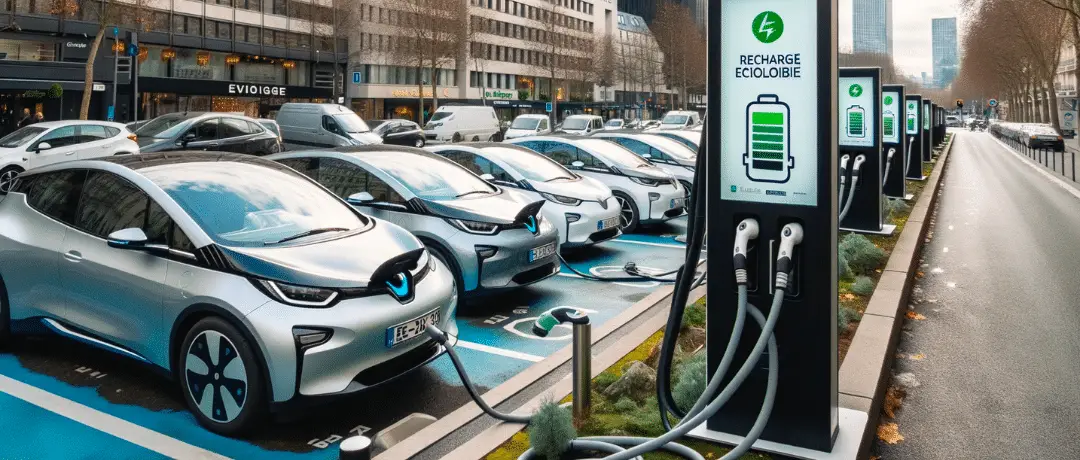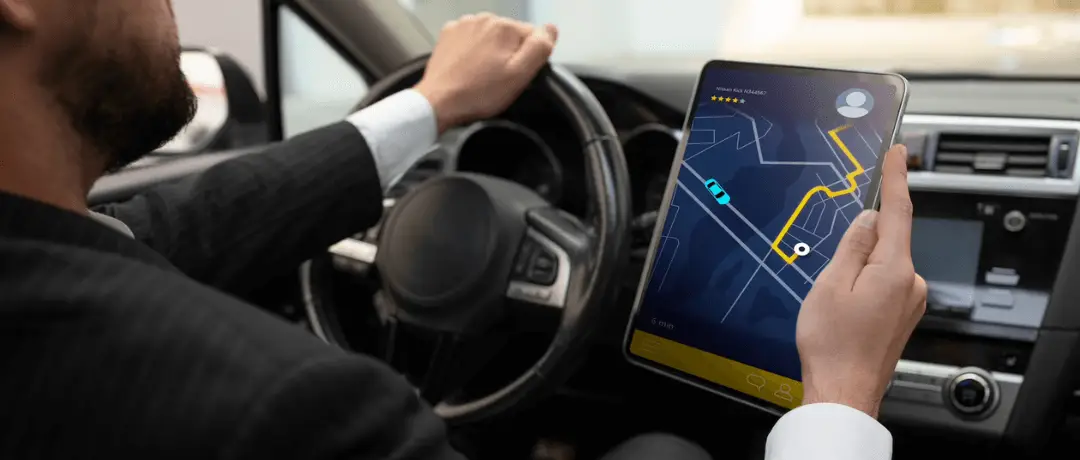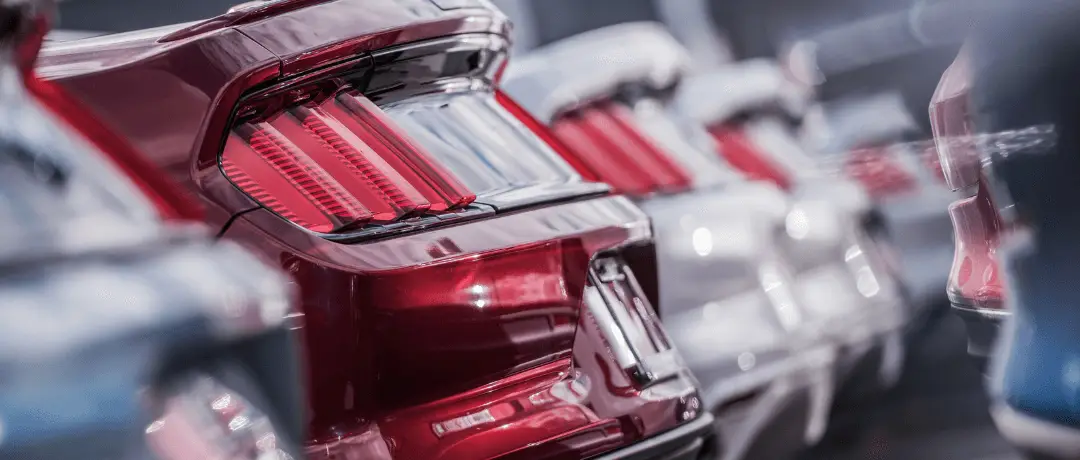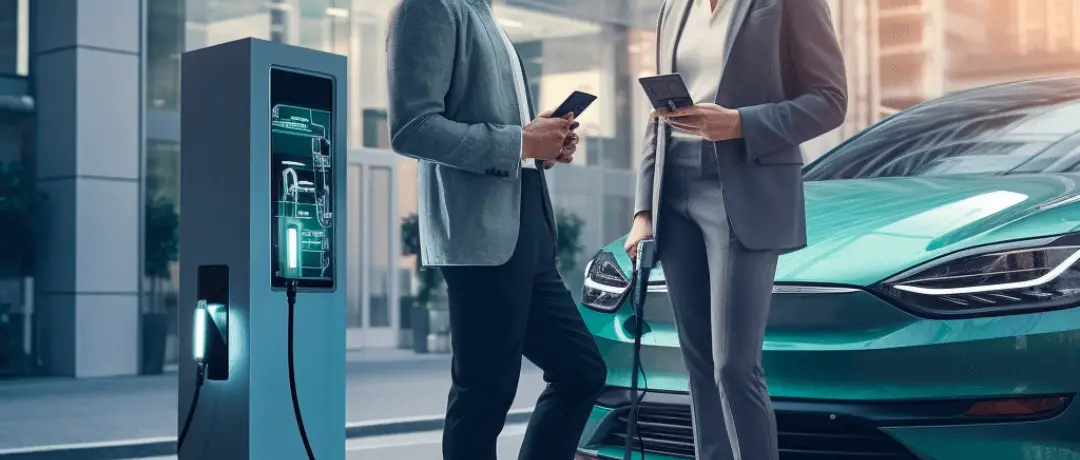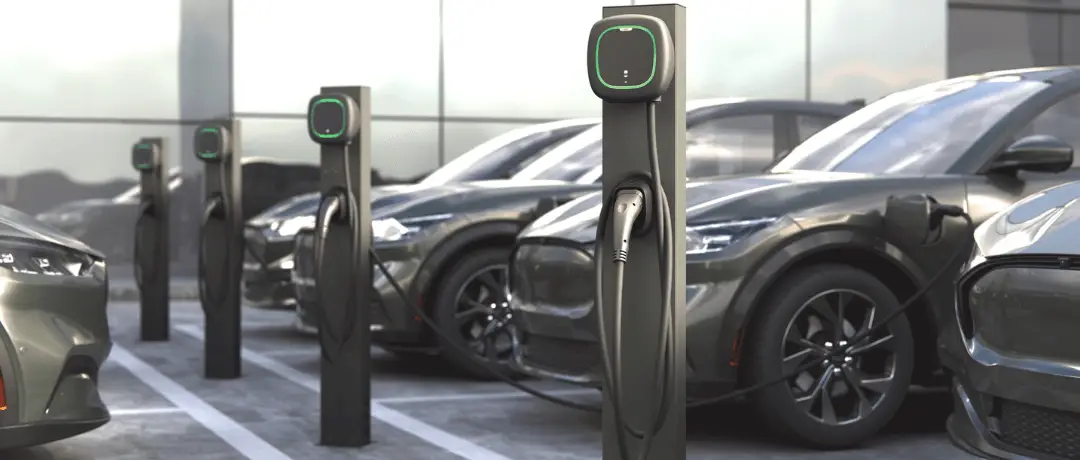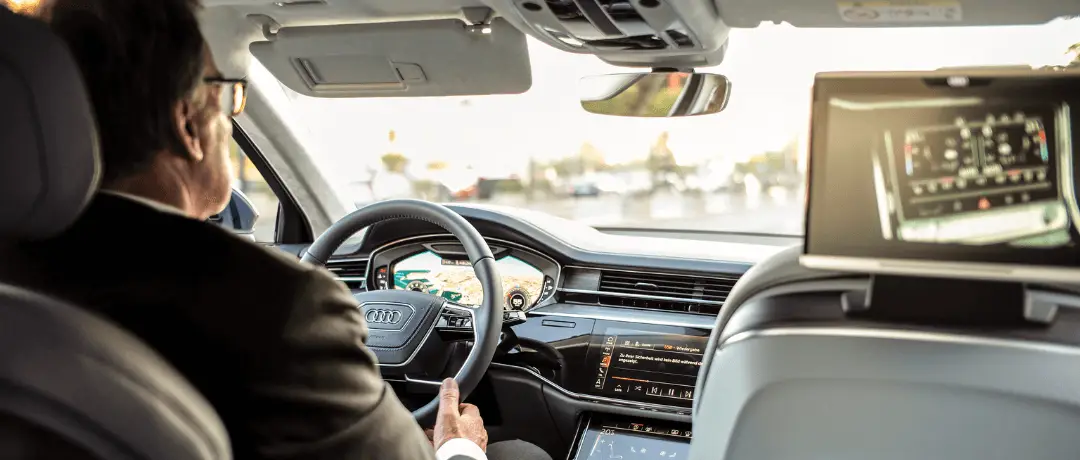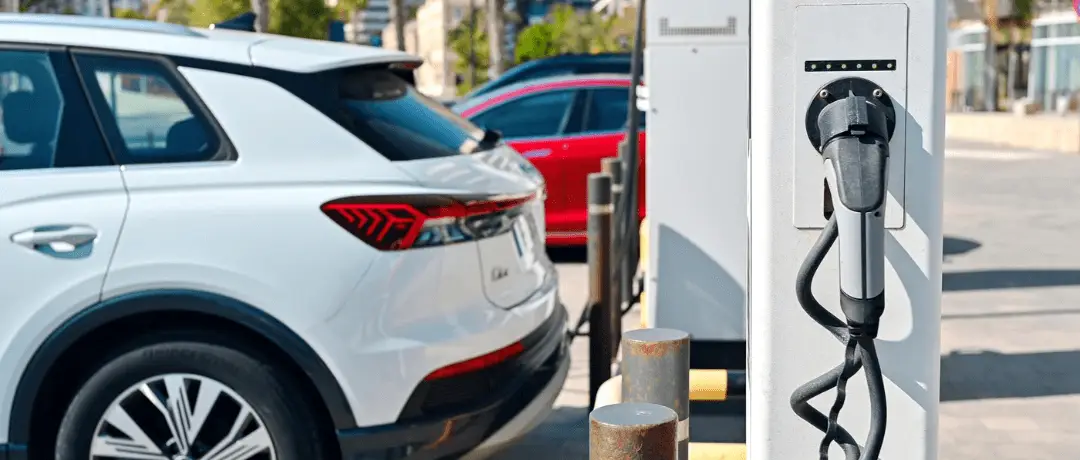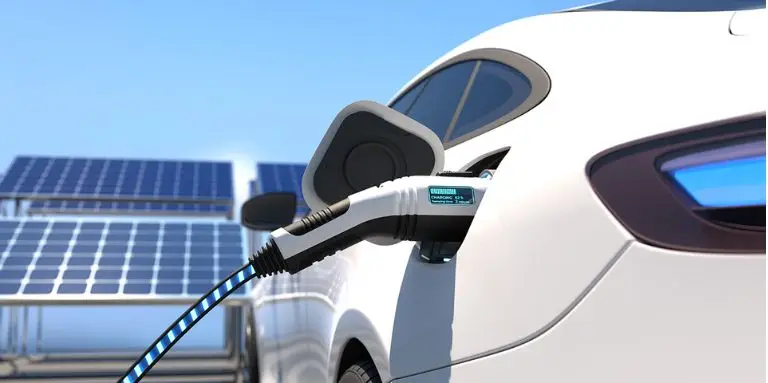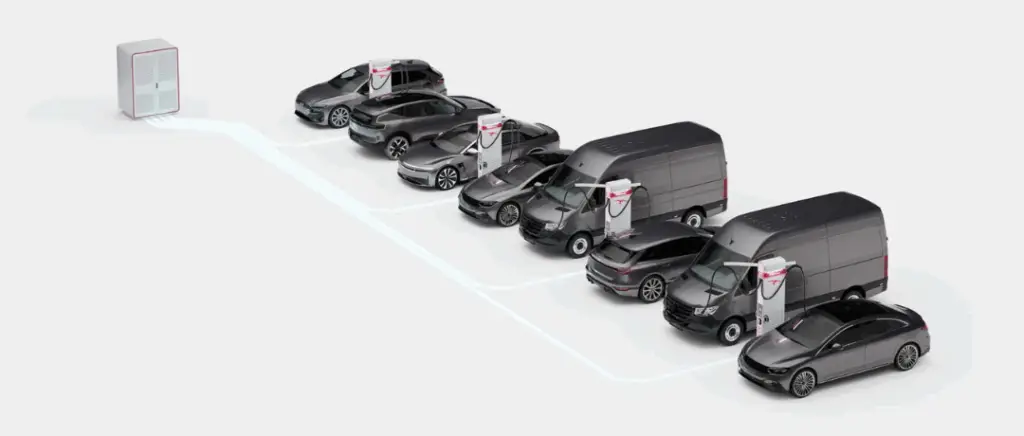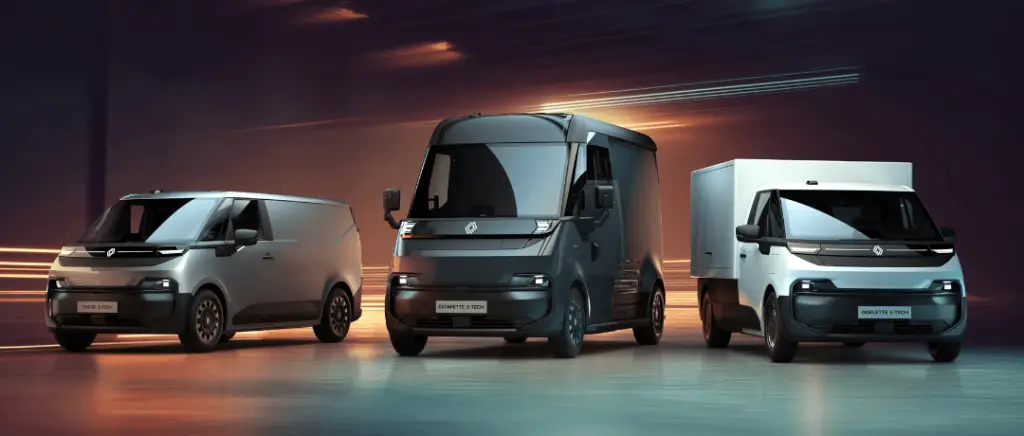Monday to Friday
9am - 12.30pm - 2pm - 7pm
The obligation to electrify the vehicle fleet in-house
La LOM ActThe Mobility Orientation Act introduces a major reform to modernise mobility policies in France, with a particular focus on sustainability and thetransport accessibility.
The main objective is to redefining mobility for citizens in response to environmental challenges, with the aim of carbon neutrality by 2050. This law provides for massive investment in transport infrastructure and proposes key measures such as :
- improving existing networks,
- the introduction of low-emission zones,
- as well as promoting electric vehicles and alternative modes of transport.
It also encourages companies to adopt less polluting vehicles and encourages the use of bicycles and car-pooling. In addition, the LOM provides for financial incentives for userssuch that :
- the 400 mobility package for carpooling and cycling,
- and discounts on tolls for alternative fuel vehicles.
But that's not all: it is committed to :
- to promote autonomous shuttles,
- make driving licences more accessible,
- and reduce the cost of car parts, while attacking the manufacturers' monopoly.
Read our article about :
Evolution of the mandatory percentage of electric vehicles in a company fleet
For more information on the Mobility Orientation Law (LOM), since 2022the companies with more than 50 employees and a fleet of 100 vehicles or more must include clean vehicles when renewing their fleets.
The quotas imposed are gradually increasing:
- 10 % in 2022,
- 20 % in 2024,
- 40 % in 2027,
- and 70 % in 2030.
Companies must also install recharging facilities in their car parks, with specific obligations depending on the size and age of the buildings. Although there are as yet no penalties for non-compliance, anticipating these obligations offers a number of advantages. financial advantages and improves the company's image.
To make the transition successfully, it is advisable to call on experts to optimise fleet management and comply with regulations, while maximising the economic and environmental benefits.
Read our article about :
Nevertheless, a study by Transport & Environment (T&E) reveals that almost 60 % of French companies did not meet the greening quotas for their fleets in 2023. As mentioned above, legislation imposes strict obligations on companies with more than 50 employees to include a certain percentage of low-emission vehicles in their fleets. However, many many companies are struggling to meet these targetsDespite the financial penalties laid down for recalcitrant offenders.
As a result, a The new bill aims to reinforce these quotas and exclude plug-in hybrid vehicles from the calculationsThis is forcing companies to switch to fully electric or hydrogen-powered vehicles.
The reforms under way, including an ecological bonus for commercial vehiclesare designed to give companies more incentive to adopt electric fleets. The financial benefits are significant, including :
- tax exemptions,
- environmental benefits,
- improving brand image,
- as well as savings on fuel and maintenance costs,
As a result, the European Union is also pushing companies to comply with the new sustainability standards, on pain of sanctions. The recalcitrant companies risk fines and reputational damageThis is a major challenge at a time when transparency and sustainability have become essential criteria for consumers and investors.
Read our article about :
The electric car is gradually establishing itself as an essential option for businesses, thanks to its total cost of ownership (TCO) now lower than that of internal combustion vehicles. This trend is reinforced by the savings made on energy, taxation and maintenance.
In addition, fleet electrification plays a crucial role in reducing carbon emissions, while promoting the second-hand market through the rapid resale of vehicles.
Faced with the urgency of climate change, France plans to accelerate this transition, in particular through a proposed law to make company fleets greener as briefly mentioned above.
This legislation, introduced by MP Damien Adam, seeks to strengthen existing regulations to encourage the adoption of electric vehicles in companies. The transport sector, the main emitter of greenhouse gases in France, is at the heart of this initiative. Despite the ambitious targets set by the National Low Carbon Strategy, more stringent action is needed to significantly reduce emissions by 2030.
Damien Adam's bill, although controversial, introduces a number of changes to the law. progressive fleet electrification quotas and provides for financial penalties for companies that fail to meet these obligations. Adjustments have been proposed, particularly concerning the electrification timetable and fines, in order to reconcile ecological imperatives with the operational realities of companies.
Among the key measures, the integration of theeco-score as a criterion for selecting electric vehicles and inclusion of retrofitted vehicles illustrate this desire to adapt. In addition, specific provisions for short-term rental and thecar-sharing are plannedwith a review scheduled for 2027.
Read our article about :
At the same time, the French government is stepping up its strategy to promote sustainable mobility, particularly among young people. companies accounting for more than 50 % of annual new vehicle registrations.
Le 2024 finance billadopted on 21 December 2023, introduces major changes to car taxation, focusing on three main areas, which we will detail below:
- the restriction of the ecological bonus,
- the hardening of the ecologic malus,
- and the revision of annual taxes on CO2 emissions and pollutants.
These tax adjustments are clearly intended to encourage companies to opt for greener fleets, while considerably increasing the financial burden for those who continue to use polluting vehicles.
These measures, designed as levers to accelerate the energy transition, transform car taxation into a powerful tool for promoting sustainable mobility.
Read our article about :
The advantages of electric vehicles for business
The growth of electric vehicles in the automotive market is undeniable, with these vehicles accounting for a growing proportion of sales, both to private individuals and to businesses.
By the end of 2022, almost 16 % of company cars were electricunderlining the importance of professionals considering this transition.
In addition to the environmental benefits, electric vehicles :
- reduce noise pollution,
- offer a superior driving comfort,
- and improve the company's corporate social responsibility image (CSR).
From an economic point of view, although the initial investment is high, the long-term savings are substantial. Le the cost of recharging is significantly lower to that of fossil fuels, and themaintenance is less complex and costly. Electric vehicles have fewer mechanical parts, which reduces the frequency and cost of maintenance.
The legislative and fiscal environment is also favourable, with incentives such as the conversion premium and the Advenir premiumwhich can considerably reduce the cost of purchase. In addition, companies can benefit from tax exemptions, such as :
- l'exemption from vehicle registration tax,
- and the abolition of Company Vehicle Tax (TVS).
In terms ofautonomythe current electric vehicles offer performance for business tripsespecially in urban areas. Finally, technological advances are simplifying recharging, with systems such as the "Plug & Charge"and faster and faster recharge times.
Read our article about :
In addition to these advantages, we have thebenefit in kindwhich is a tax mechanism enabling employers to provide various services or benefits to their employeessuch as the provision of a company car.
This scheme specifically concerns vehicles that employees can use for both professional and personal reasons. Unlike company cars, which are used solely for work-related journeys, company cars offer a tax advantage for the employer, as well as being an asset for :
- attract,
- build loyalty,
- and motivate employees.
The adoption of company electric vehicles offers even more attractive tax benefits than combustion vehicles, thanks in particular to tax exemptions and specific rebates.
For example, the cost of electricity for recharging vehicles is not taken into account when calculating the benefit in kind, and a allowance of 50 % can be applied in the limit of €1,800 per year.
The calculation of this benefit depends on whether the vehicle is purchased or leased by the company.
In the case of a purchasethe advantage represents a percentage of vehicle purchase costwhile for a rentalthe total is 30 % of total annual cost. These conditions make the a particularly attractive company electric vehicleBoth the employer, who reduces his social security contributions, and the employee, who benefits from a significant tax advantage.
Read our article about :
Similarly, the VATor Value Added Tax, is a form of consumption tax introduced in France in 1954 to simplify the tax system. Unlike previous taxes, it applies uniformly to the final consumerThis is the case regardless of the number of intermediaries involved. Each company involved in the production of a good collects the VAT from its customers and pays it to the State after deducting the VAT paid to its own suppliers.
However, in the corporate world recovery of VAT on company cars is limited. For the private vehicles for professional usethe VAT is generally not recoverableno matter how you buy.
However, when it comes to electric cars, the VAT on electricity is fully recoverable. In addition, companies benefit fromadditional tax benefitssuch that :
- l'exemption from vehicle registration fees,
- a base ofadvantageous amortisation set at €30,000,
and theexemption Company Vehicle Tax (TVS).
Read our article about :
Naturally, the leasing an electric car is a strategic option for companies wishing to reduce their carbon footprint while optimising their costs.
La Long-term leasing for professionals is particularly popularbecause it allows companies to benefit from a fleet of modern vehicles without tying up large amounts of capital.
This type of financing offers flexibility and tax benefitsThese include deducting rental income from taxable income, while avoiding the risks associated with maintenance and repairs.
La Hire with Purchase Option (LOA), for its part, presents thethe opportunity to buy back the vehicle at the end of the contractoffering a a flexible alternative for businesses.
Finally, the possibility of hire charging stations enables companies :
- stabilise their budget,
- and maintenance services,
making the transition to electric vehicles both sustainable and economically viable. Electric car leasing is therefore emerging as a global solution for companies looking to combine performance, savings and environmental responsibility.
Read our article about :
To go further in the field of leasing, and more specifically in that of long-term leasing, thedepreciation of long-term leased vehicles can seem complex. However, it is essential for companies planning to hire electric cars.
When a company acquires a vehicle, it is entered on the assets side of the balance sheet as a fixed assetand its depreciation is tax deductibleexcept in certain specific cases linked to CO2 emissions.
For the leased passenger carsa annual depreciation ceiling is appliedThis is influenced by the vehicle's CO2 emissions. For example vehicles emitting more than 155g/km of CO2 are subject to a very strict depreciation ceiling. In addition, the The General Tax Code imposes a limit on the deductibility of depreciation when the purchase price exceeds €18,300.. Non-deductible depreciation is calculated on the basis of the financial value of the vehicle, spread over the depreciation period.
With regard to electric commercial vehiclescompanies can recover the VAT on rents and fuelwhich is not not the case for passenger cars.
Electric and hybrid vehicles benefit from a number of tax incentives, such as exemption from the tax on the use of passenger vehicles for economic purposesThis makes them even more attractive from an accounting point of view.
Read our article about :
Tesla Model 3 Performance
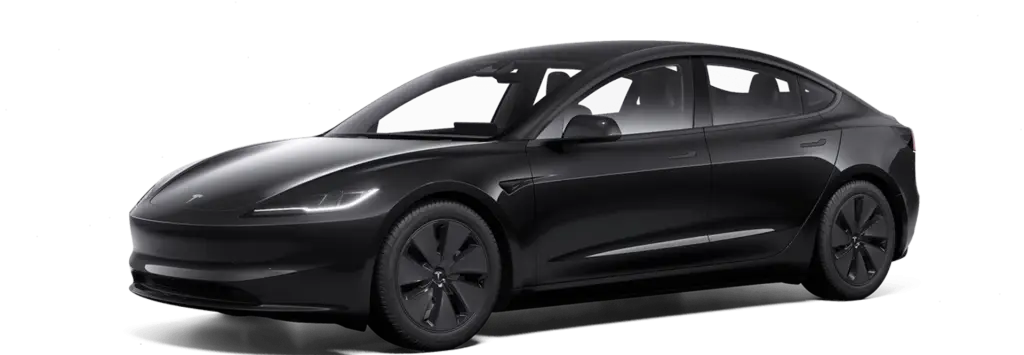
Purchase price 57 490 €
(list price excluding bonuses)
Leasing with no deposit for professionals from €0/month
- Range (WLTP): 528 km
- Acceleration (0 to 100 km/h): 3.1 sec
- Fast charge (from 20 to 80 %): 20 min
Peugeot e-308 54 kWh

Purchase price 43 900 €
(list price excluding bonuses)
Leasing with no deposit for professionals from €498/month
- Range (WLTP): 409 km
- Acceleration (0 to 100 km/h): 9 sec
- Fast charge (from 20 to 80 %): 23 min
Professionals: Support for the purchase of electric vehicles
The ecological bonus is financial aid to encourage the purchase of vehicles with a reduced carbon footprint, whether new or used.
Visit 2024As part of France's ongoing efforts to promote greener mobility choices, significant adjustments have been made to the scheme. The eligibility criteria have changedeliminating the notion of mass to focus on a more comprehensive assessment of the environmental impact of vehicles, including :
- routing,
- the materials used,
- and CO2 emissions.
For 2024, the amount of the bonus has been modified. companies and local authorities no longer benefit from this aid for private vehiclesand amounts granted to commercial vehicles and used vehicles have also been reduced. In addition, the used electric cars are no longer eligible to a bonus, but leasing for private customers will benefit from increased aid.
The light electric vehicles and quadricycles continue to benefit from specific bonusesElectric retrofits (i.e. the conversion of internal combustion vehicles to electric) continue to be supported under certain conditions.
The procedures for obtaining the eco-bonus have not changed: it can be deducted directly by the dealer or subsequently requested fromServices and Payment Agency.
Read our article about :
At the same time, that same year ecologic malus in France major changes to encourage the adoption of more environmentally-friendly vehicles.
Le The threshold for triggering the penalty has been lowered to 118 g/km of CO2leading to 50 tax for vehicles exceeding this limit.
This lower threshold means that more vehicles will be covered by the tax, thereby increasing the incentive to choose less polluting models. Visit malus ceiling now €60,000applicable to vehicles emitting 194 g/km of CO2 or more.
What's more, the weight penaltywhich penalises vehicles weighing more than 1,600 kgis intensified.
This measure aims to encourage the production of lighter vehicles and therefore less polluting, despite criticism of its impact on family and commercial vehicles.
Read our article about :
Despite the abolition of this aid, the conversion premium remains in place, providing an additional aid for companies considering the purchase of a new or used electric or rechargeable hybrid vehicle. It can go up to €3,000 for companieswith specific amounts for professionals interested in :
- 2 or 3-wheeled vehicles,
- or electric quadricycles.
And don't forget that there are a number of grants available for the purchase of one or more charging points, as well as a number of regional grants.
Read our article about :
For more details, we have, for example, the Île-de-France region which subsidises the purchase of electric cars and the retrofit to encourage pollution reduction, providing support for small local businesses.
This regional aid, available to companies with fewer than 50 employeesis subject to a maximum purchase price of €47,000 for electric vehicles assembled in the EU or meeting certain environmental standards.
The amount of aid varies according to the type of vehicle, ranging from 1,500 for two-wheelers à 9,000 for electric trucks.
A specific aid of €15,000 is also available for new craft or commercial businesses under certain conditions. In addition, theretrofit assistance enables combustion vehicles to be converted into clean vehicles, with subsidies ranging from 500 € à 3 000 €depending on the type of vehicle.
Finally, the Auvergne-Rhône-Alpes region supports the purchase of electric vehicles with specific grants, accompanied by conditions of commitment for beneficiaries. However, this aid is only available to :
- SMES,
- companies,
- communities,
- liberal professions,
- public institutions,
- independent resellers,
- and local associations.
Each programme requires specific administrative procedureswith requests to be made online or by postdepending on the region concerned. These grants can be combined under certain conditions, offering an interesting opportunity for professionals wishing to adopt more environmentally-friendly vehicles.
Read our article about :
Company taxation and electric vehicles: tips and tricks
Although the initial investment in electric vehicles is generally higher than for internal combustion vehicles, they offer advantages such as substantial fuel savings and advantageous taxation.
What's more, electric vehicles also offer lower depreciation and lower maintenance costswhich can reduce overall TCO.
The Total Cost of Ownership (TCO), or total cost of ownership, is a crucial measure for companies in order to achieve their objectives.assess the full cost of their assetsincluding electric vehicles.
Introduced by the consulting firm Gartner Group in 1987 to reduce IT expenditure, TCO also applies to car fleets. It covers all costs associated with a vehicle over a given periodgenerally 5 years.
These fees include :
- maintenance,
- fuel,
- the initial capital,
- depreciation,
- insurance,
- and administrative costs.
To calculate the TCO accurately, it is essential to take several parameters into account.
La depreciation constitutes approximately 40 % from TCOThis is because the value of the vehicle diminishes over time. The cost of fuel represents approximately 20 %, depending on various factors such as :
- the recharge price,
- the condition of the vehicles,
- and driving style.
L'insurancewhich may constitute 10 to 15 % from TCOvaries according to the type of cover and vehicle characteristics.
Finally, the maintenance costsrepresenting approximately 5 to 10 %These costs increase over the years, influencing the overall cost of ownership.
So choosing your vehicles carefully and optimising your TCO calculations are essential to maximising savings and investing intelligently in your fleet.
Read our article about :
In the same vein, to keep costs under control, it is important to choose an electrical model tailored to your company's specific needs.
If your frequent travelopt for a model with good autonomy.
On the other hand, for urban journeysa electric city car will be more appropriate. Visit recharge speed is also a key factordirectly influencing the efficiency of your operations.
What's more, plan your trips and adapt your driving are effective strategies for :
- optimising autonomy,
- and reduce energy costs.
As a company, we also recommend that you raise awareness and train your employees in eco-driving and theuse of recharging points. Finally, install company charging points or to employees' homes can represent an advantageous solution for minimise the cost of recharging.
Use the TCO simulator to calculate the total cost of ownership of your car and compare it with its internal combustion equivalent.
Read our article about :
Firstly, installing recharging points in the workplace has become a necessity for many companies, not only to meet the growing demand from employees, but also to improve their satisfaction. Offering this service allows employees to :
- save time,
- reduce their stress,
- making the company more attractive and its corporate social responsibility policy.
However, this investment can be costlywith expenditure of up to several thousand euros depending on the installation and associated services.
To recoup these costs, companies can choose to charge their employees for recharging, whether :
- per kWh,
- to time,
- or as a package.
Each method has its advantages, depending on the company's needs. The connected charging stations also offer advanced functionalitiessuch as remote supervision and theautomated invoicingmaking day-to-day management easier.
Read our article about :
Secondly, there are the mileage allowancesbeing a financial compensation paid by the company to an employee who uses his personal vehicle for business purposes. Unlike company cars, the allowances relate exclusively to employees' private vehicles.
This compensation covers costs such as :
- wear and tear,
- maintenance,
- insurance,
- and electricity consumption for electric vehicles.
However, it excludes :
- tolls,
- loan interest,
- and parking charges,
For electric vehicles, a 20 % surcharge is applied at the standard kilometric rate, making themore advantageous compensation.
What's more, the allowances can be deducted from taxable income via two methods:
- the flat-rate deduction of 10 %
- or the deduction of actual expenses, the latter requiring proof of expenditure.
Le kilometric scalewhich was increased in 2024 by 5.4 %takes into account theinflation and rising fuel costs. For electric vehicles, this scale already includes costs related to batteryThis makes it a financially attractive option for professionals.
Read our article about :
The advantages of buying electric vehicles for different types of company
The liberal professions
For the liberal professionalsthe purchase of an electric car has a number of advantages. significant tax benefits. Recent tax changes, notably the abolition of the ecological bonus for companies and theadjustment of amounts for individualsare all factors to be taken into account.
However, self-employed professionals can take advantage of :
- of the conversion premium,
- up to up to €6,000 for low-income households,
- and benefit fromadditional aid in Low Emission Zones (EPZ).
When it comes to tax deductions, professionals can choose between two methods:
- the actual costs,
- or mileage allowances.
Kilometric allowances cover a wide range of expenses, including depreciation, maintenance and electricity.
For the actual costsit is it is necessary to keep all invoicesHowever, this method can be more complex in the case of mixed use of the vehicle.
All in all, the purchase of an electric vehicle for a self-employed business is a tax-optimised choice.
Read our article about :
The government actively encourages liberal professionals to switch to electric vehicles, offering a number of tax advantages.
Among these advantages, depreciation allows tax deduction of up to €30,000 for vehicles emitting less than 20g of CO₂/km. It is also possible tocushion the battery separately. Registration, some regions grant total exemption from vehicle registration tax for electric cars.
What's more, the professionals are exempt from company car taxwhich has now been replaced by taxes on polluting emissions.
Read our article about :
Tourism-related professions
The passenger transport sector, which is expanding rapidly with the growing popularity of matchmaking applications, encompasses a variety of professions such as :
- the taxis,
- the VTC drivers,
- and LOTI capacity.
Passenger transport companies enjoy special tax advantages.
They can reclaim VAT on the purchase of their vehiclesThis is true whether the equipment is purchased for cash, leased or rented. In addition, these companies are exempt from tax on the use of passenger vehicles for business purposes, provided that the vehicles are used exclusively for passenger transport. With regard to depreciation vehicles can be depreciated over 4 to 5 yearswith a taxis can be written off over 3 years.
Read our article about :
SMEs
For the SMEs and VSEsthe LLD offers a number of advantages major.
From a tax point of view, electric vehicles :
- benefit fromexemptions from company car tax (TVS)
- and make it possible toincrease deductible expensesThis optimises corporation tax.
In addition, long-term leasing makes it easier to better cash management thanks to fixed monthly payments that make it easier to plan your budget.
Long-term leasing also offers contractual flexibilitywhich allows the contract to be adapted to the changing needs of the company, such as the mileage or services included. What's more, it guarantees that the vehicle is always up to date and performing well, contributing to the company's brand image and employee satisfaction.
In terms of financial support, the government offers various schemes, such as the conversion premium, which can be combined with local aids to reduce the cost of electric vehicles.
But that's not all: the ADEME Green Loanin collaboration with Bpifrance, is also available to help SMEs and VSEs finance their energy transition on advantageous terms.
Finally, to complete the energy transition, companies can consider installing charging stations and distributing recharge cards to their employees, facilitating the use of electric vehicles.
Read our article about :
You want to order your Beev recharge card ?
Thanks to our card,recharge your electric car with ease at all the charging points available in Europe.
Did you know? The adoption ofelectric vans offers a number of advantages for SMEsThis goes beyond simply reducing fuel and maintenance costs.
These vehicles offer significant savings thanks to :
- simplified management of operating costs,
- and a significant reduction in maintenance expenditure, with costs up to 25 % lower than those for combustion vehicles.
The market for electric vans is expanding, with a growing range of models tailored to the specific needs of SMEs, including :
- the Renault Kangoo e-Tech for transporting equipment
- or the Peugeot e-Expert for last-mile delivery.
Purchasing or leasing these vehicles also entitles you to tax benefits such as the VAT recovery and low-cost depreciationand reduce the company's carbon footprint.
To take full advantage of these benefits, it is crucial tooptimise the management of your electric fleet taking account of needs :
- independently,
- associated costs,
- and the useful volume of the vehicles.
SMEs have several options when it comes to recharging management:
- use of domestic adaptors,
- installation of in-house charging stations,
- or membership of public recharging networks,
Each solution offers specific advantages depending on the company's needs and resources.
By gradually adopting electric vans, your SME will not only be able to reduce operating costsIt also enhances its brand image by positioning itself as a responsible player in the energy transition.
Read our article about :
Conclusion
The taxation of electric cars in companies represents a major challenge. a field rich in opportunities and advantages for discerning professionals. By taking advantage of available grants, tax reductions and amortisation mechanisms, companies can not only reduce their operating costs and boost their ROI, but also play an active role in the energy transition.
Keeping abreast of legislative developments and tax opportunities is essential to maximise the benefits of your transition to an electric vehicle fleet. By investing time in a thorough understanding of these aspects, you will be able to both optimise both your management and your investments, while making a positive contribution to the environment and strengthen your brand image.
Are you convinced of the benefits of electric vehicles for your business and looking for a reliable partner to help you make the transition? Beev is the right solution for you! Contact our experts today for a free quote and to find out more about our tailor-made solutions.
More than 5,000 customers have placed their trust in us
Many thanks to Mr Ulysse DESTOM for his support. He was able to answer all our questions, even late at night. An exceptional follow-up, thank you again!
Meeting deadlines. Clean work.
Dynamic company motivated by customer satisfaction: very quick turnaround, good value for money for the products offered and commitments kept. I highly recommend them.
Hello, Are you looking for a charging point to recharge your vehicle at home? Look no further than beev, great value for money and incredibly efficient service before, during and after! I'd recommend beev with my eyes closed and I really don't regret it. A big thank you to Mr Emmanuel for his professionalism! And well done to the installer who did a great job. Neat work, thank you very much 🙏
New hybrid car, so information about a charging point. After various conversations with competitors, the cost was around €2,000.... Then a call from BEEV, Sofiane explained that, given my hybrid vehicle, a simple reinforced socket would do the job and cost me much less. The only condition is that it has to be fitted by a professional. He could have sold me a plug like the competitors, but he didn't, which shows how serious the BEEV employees are. I did not do business with BEEV, but I would recommend 1000% for their reliability and honesty. I will definitely recommend you to my friends and family. Special mention to Sofiane... Thank you again for your professionalism (it's not commonplace any more... Don't change!!!).
Throughout the process of converting to electric, I benefited from relevant advice in line with my needs, clear explanations and close contact with Amine, which made every stage of the transition much easier. I would recommend Beev's advice and support.
